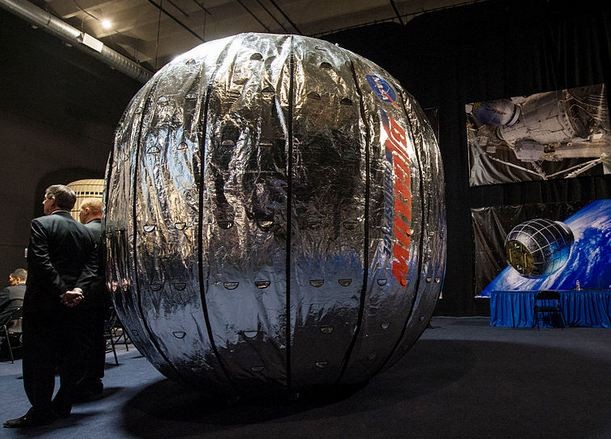NASA intends to continue with its plan to test an expandable space habitat for Mars built by Bigelow Aerospace aboard the International Space Station.
The Bigelow Expandable Activity Module (BEAM) will be the primary payload of the SpaceX CRS-8 cargo resupply mission set to launch on September 2.
The US$17.8 million contracted by NASA will see BEAM tested aboard the ISS for two years. NASA will test the BEAM module's structural integrity, leak rate, radiation dosage and temperature changes over a notional two-year-long mission.
NASA said ISS crews will live in BEAM a few times a year to collect data. It described the interior of BEAM as a large closet with padded white wall outfitted with various equipment and sensors attached to two central supports.
BEAM is made from one of the most advanced fabrics ever developed, said The Guardian. It's coated by a layer of bulletproof Vectran, a "liquid crystal polyacrylate superfiber" twice as strong as Kevlar.
More important, Vectran can withstand multiple hits from micrometeoroids that would penetrate the aluminum hull of the ISS.
At the end of its mission, BEAM will be ejected from the ISS to burn up during atmospheric reentry.
Testing BEAM in space will confirm if this inflatable structure can withstand the rigors of housing humans on Mars. NASA has long held that inflatables are the way to go in building space habitats on Mars because they weigh less and take up less space on rockets than rigid habitats that have to be bolted together.
Concepts for manned colonies on Mars abound, but many have chosen inflatables as the habitat of choice.
"Mars is the new world," said Robert Zubrin, president of the Mars Society.
He believes we'll eventually see millions of people living on Mars, giving rise to the second human race of "Martians".
Zubrin imagines a world of inflatable greenhouses providing food and oxygen protected by UV-resistant plastic domes. It is a plan the Mars Society has illustrated with scenes of people in spacesuits watering plants and holding hands among radiant red rocks.
Based in Las Vegas, Bigelow Aerospace is an American space technology firm pioneering in designing and building expandable space station modules.



























